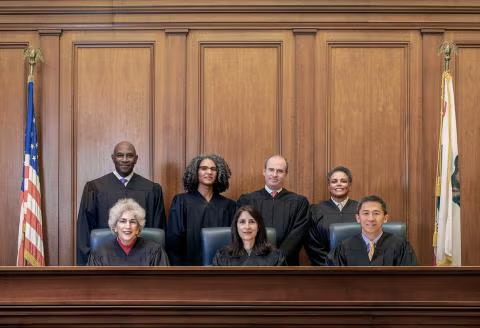Governor Brown Signs New Laws Impacting California Employers
In the past few days, the California Governor has signed several new laws that will impact California employers beginning January 1, 2013, unless otherwise noted. These include:
AB 1844 (social media): This new law prohibits an employer from requiring or requesting an employee or applicant (1) to disclose a username or password for the purpose of accessing personal social media, (2) to access personal social media in the presence of the employer, or (3) to divulge any personal social media. It also prohibits an employer from disciplining, discharging, or otherwise retaliating against any employee or applicant for not complying with any request by the employer that violates these provisions.
AB 2674 (inspection and copying of personnel records): Existing California law (Labor Code §1198.5) allows employees the right to review certain of their personnel records. AB 2674 amends Labor Code §1198.5 in several key ways. First, AB 2674 makes clear that the inspection right applies to both current and former employees. Second, the new law requires employers to maintain personnel records for at least three years after termination of employment. Third, AB 2674 requires that the employer must allow the requested inspection within 30 days of the request. Fourth, AB 2674 gives current and former employees the right not only to inspect their personnel records but also the right to receive copies, also within 30 days, of all personnel records relating to the employee’s performance and/or to any grievance concerning the employee. Finally, AB 2674 has a damages component as well — if the employer fails to to comply with an inspection and/or copying request, then the current or former employee is entitled to a penalty of $750. (Note, however, that if the current or former employee has a lawsuit pending against the employer at the time of the request, the employer is not obligated to comply with these requirements.)
SB 1255 (pay stub violations): Existing California law (Labor Code §226) requires employers to provide employees with an accurate, written statement (or “pay stub”) at the time wages are paid. That statement must contain an itemization of the gross wages earned, the deductions taken, the net amount paid, the pay period, and other information. Under existing law, if an employee can show “actual injury” from an employer’s failure or refusal to provide an accurate, written pay stub, then the employee is entitled to a statutory penalty of up to $4,000. SB 1255 amends Labor Code §226 to make it easier for an employee to show “actual injury” and, thus, receive the statutory penalty. The new law states that employees are, by law, “injured” if the employer fails to provide a wage statement. In addition, if the employer provide a wage statement but it is inaccurate and incomplete — that is, the statement provided does not allow the employee to promptly and easily determine (1) the amount of the gross or net wages paid during the pay period, (2) the deductions taken from the gross wages, (3) the net wages paid to the employee, (4) the name and address of the employer, and (5) the name of the employee and only the last 4 digits of his or her social security number or an employee identification number — then the employee is also considered “injured” under the law.
AB 1744 (pay stubs of temporary services employees): This new law further amends Labor Code §226 relating to itemized pay stubs and imposes additional requirements on temporary services employers (except security services companies) effective July 1, 2013. In addition to the information already statutorily required to be included on employees’ pay stubs, temporary services employers will also need to provide itemized information concerning the rate of pay and total hours worked for each assignment. AB 1744 also amends Labor Code §2810.5 (the “Wage Theft Prevention Act” that requires employers to provide written notice to all new employees of certain wage-related information) to require temporary services employers to provide the name, physical and mailing address, and telephone number of the main office of the legal entity for whom the employee will perform their work. This amendment also takes effect on July 1, 2013.
AB 2103 (non-exempt employees on fixed salaries): This new law overturns the recent appellate court decision in Arechiga v. Dolores Press, Inc., 192 Cal. App. 4th 567 (2011), which held that an employer and non-exempt employee could agree to a fixed salary amount that included pre-payment for any overtime hours worked. Under the new law, Labor Code §515 is amended to provide that payment of a fixed salary to a non-exempt employee will be deemed to be payment only for the employee’s regular non-overtime hours, regardless of any contract or other agreement to the contrary.
AB 2675 (commission contracts): Existing California law (Labor Code §2751) requires that an employer provide a written commission agreement to any employee who receives commissions as part of his/her wage. That written agreement must detail the method by which the commissions will be computed and paid. AB 2675 amends Labor Code 2751 to exempt temporary, variable incentive payments that increase but do not decrease payment under the written contract.
AB 2386 (breastfeeding): This new law amends California’s Fair Employment and Housing Act (“FEHA”) to specifically include breastfeeding and conditions related to breastfeeding under the definition of “sex” under FEHA. Thus, with this amendment, an employer who discriminates against a female because of breastfeeding (or any related condition) has engaged in unlawful discrimination under FEHA.
All employers are encouraged to review their personnel policies and employee handbooks to ensure compliance with these new laws prior to their effective dates.
Insights
OUR BLOG


